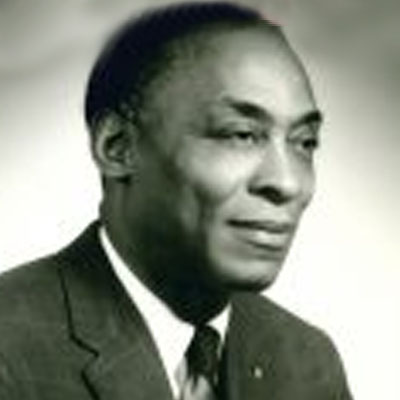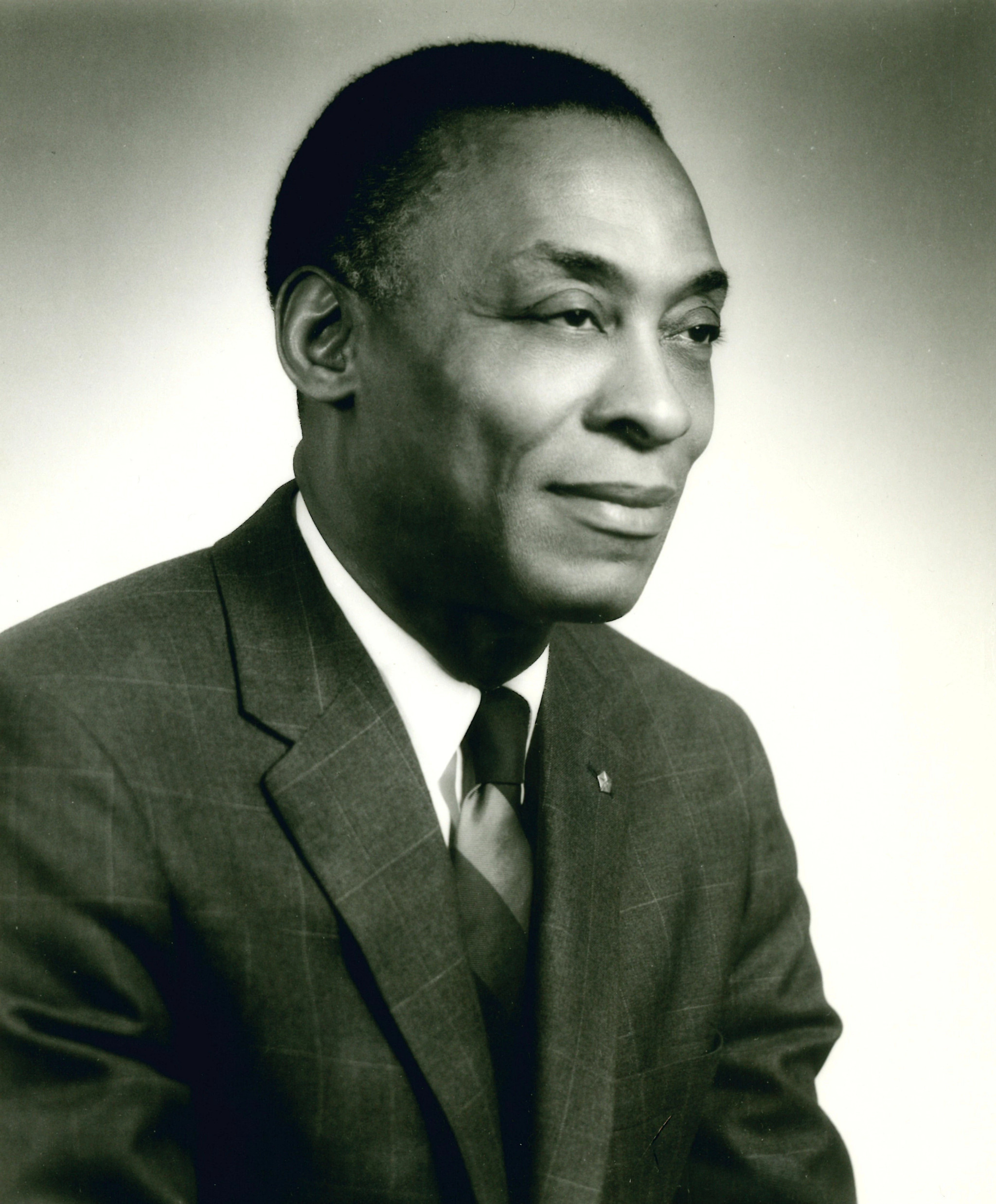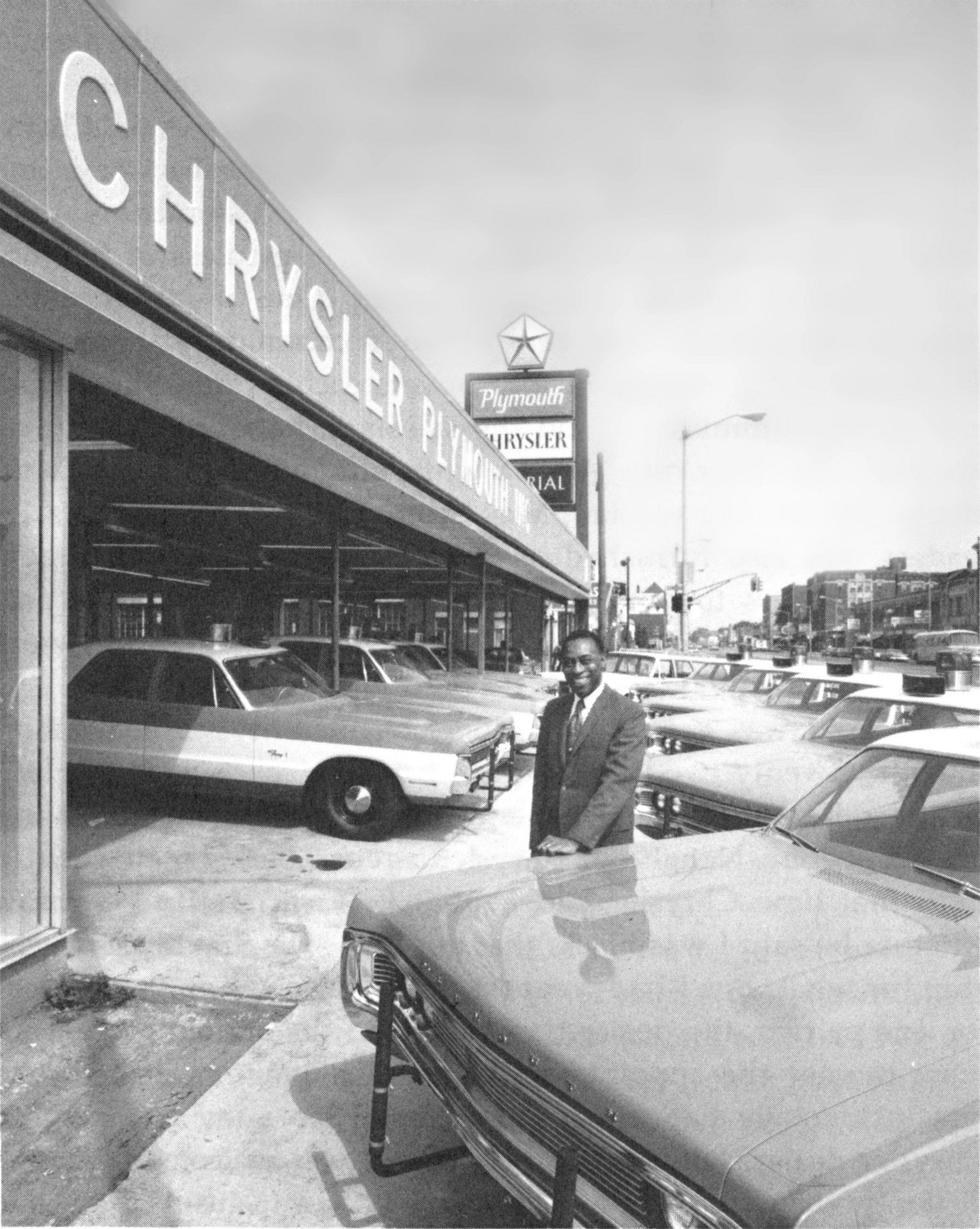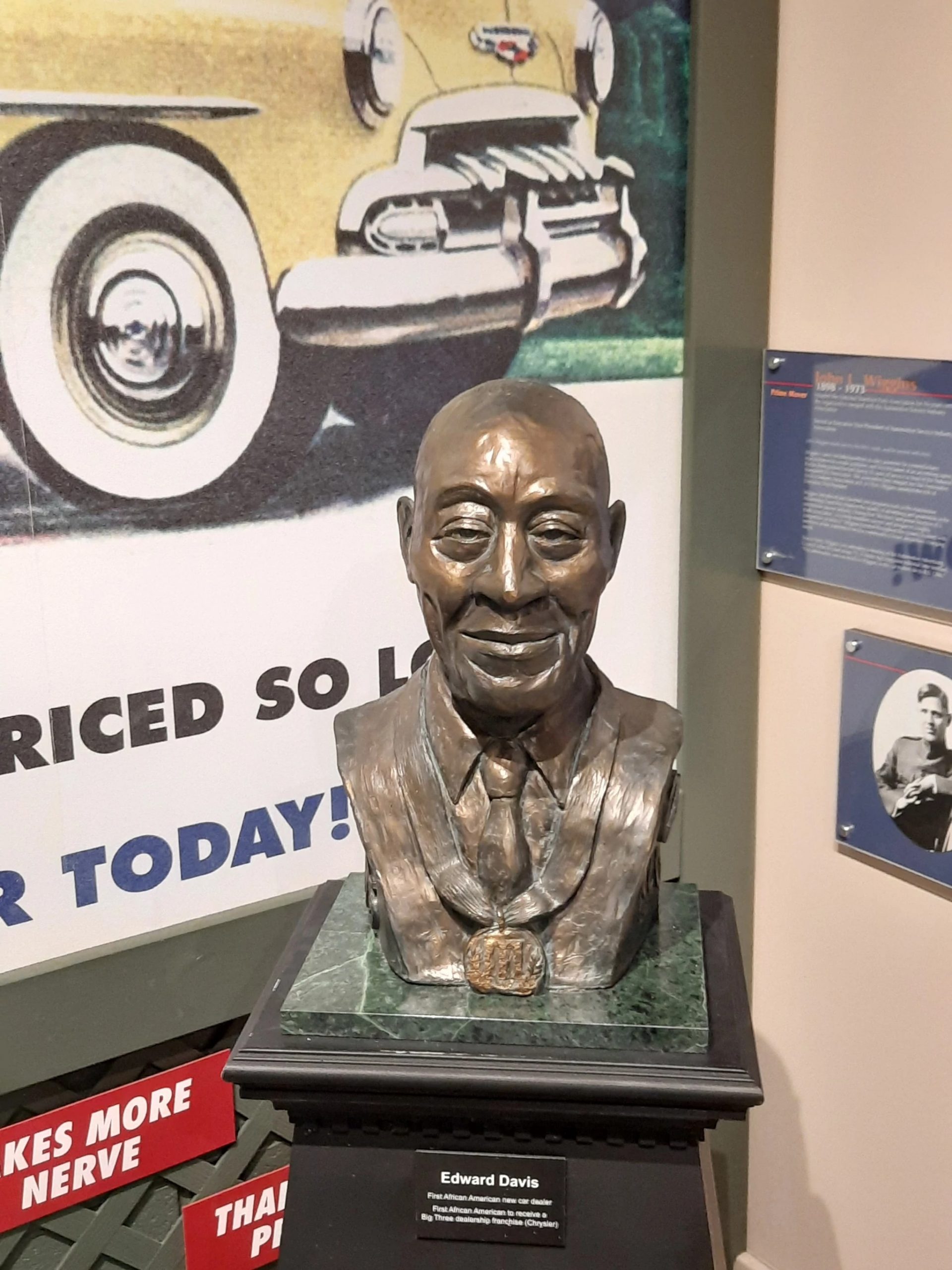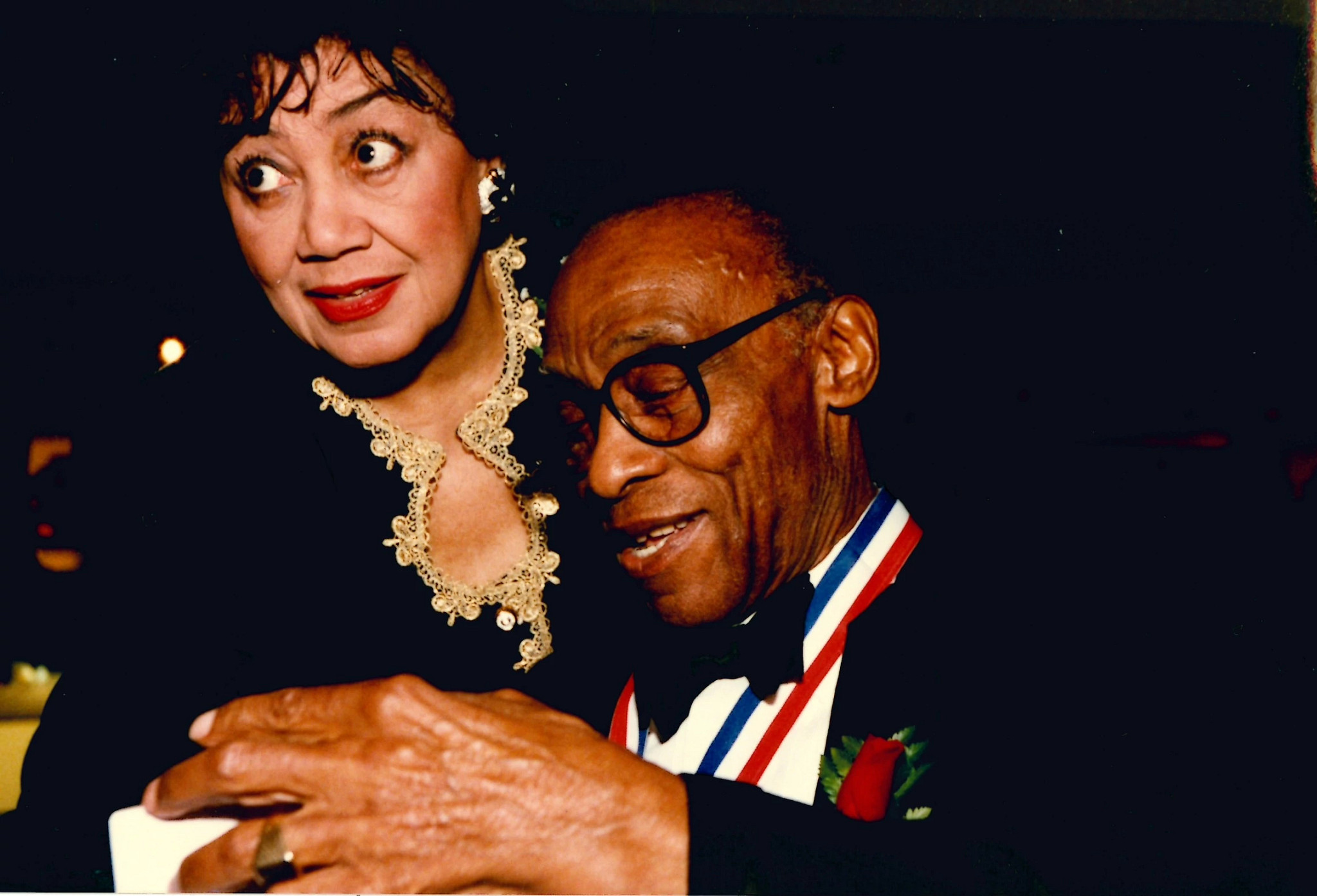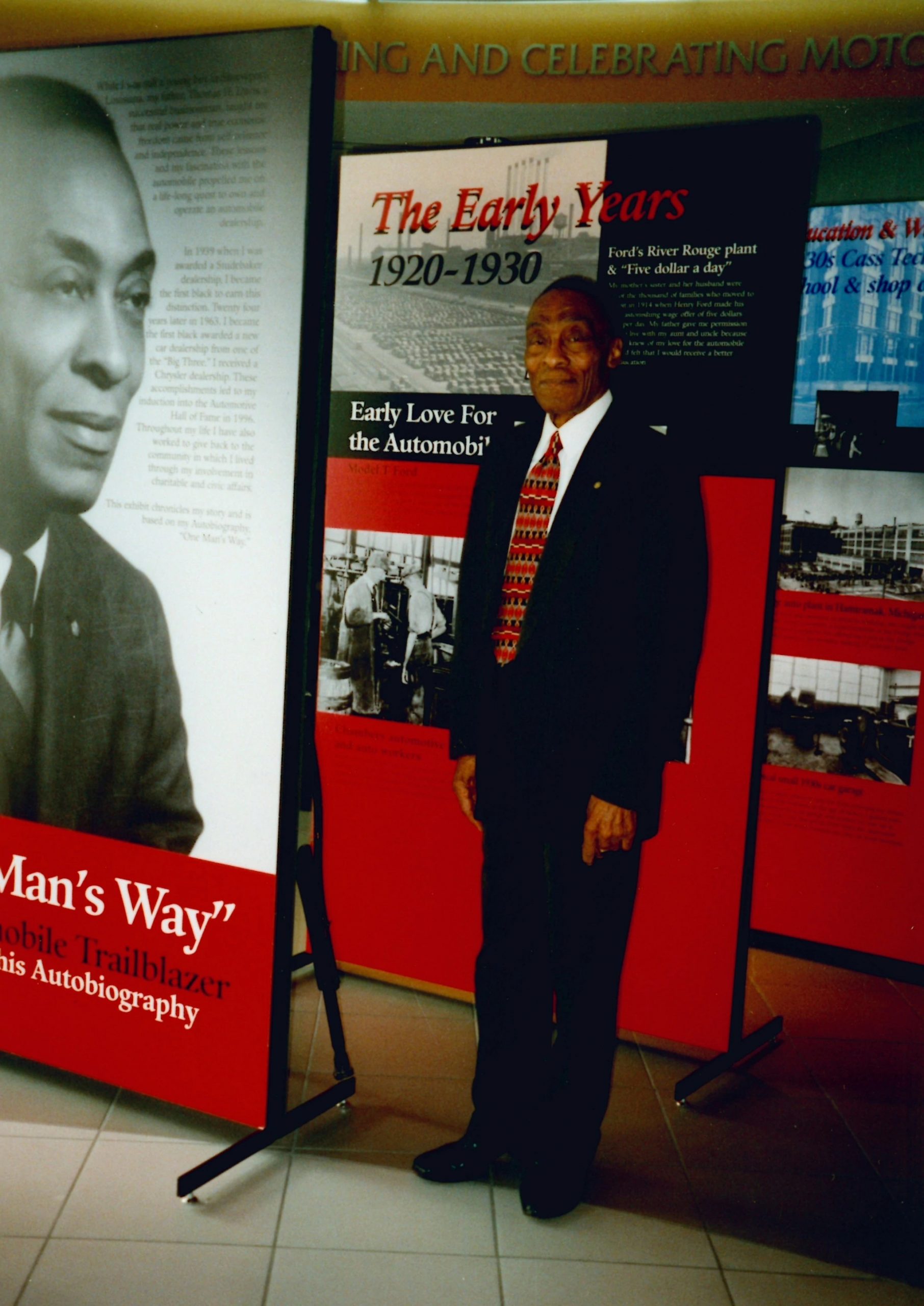Ed Davis’ interest in cars started early in life in Shreveport, Louisiana, with his father’s Ford Model T.
The oldest of 10 children, Davis moved to Detroit to live with his aunt after his mother passed away in 1921. Upon graduation from Detroit’s Cass Technical High School, he chose to pursue a career in automotive rather than accounting as he had originally planned.
Unfortunately, with no experience and unwritten barriers to employment for African Americans, there were no jobs to be found. Davis decided to open a service garage not far from Dodge’s Hamtramck assembly facility.
There, a Dodge plant supervisor became a regular customer at Davis’ garage. Impressed by his ambition and love of automobiles, he found Davis a job in the Dodge foundry, and later, the machine shop. In 1936, the supervisor’s son opened a new Dodge dealership and Davis was recruited for the job that would change his life.
A growing African American population in Detroit, supported by a demand for new cars, helped Davis succeed in his new career, despite the fact that he been forced to take an office in a storeroom on the second floor, far removed from the showroom. Undeterred, he furnished it himself, making it his “private office.” Before long, he was the dealership’s sales leader.
By 1938, Davis knew it was time to move on. Opening Davis Motor Sales, near downtown Detroit, he not only sold used cars but also brokered new vehicles for his customers. The Studebaker Corporation took note and, in 1940, awarded Davis a dealership. Following World War II, the dealership grew rapidly, soon selling 50 new Studebakers a month, a significant number for the small car maker. Unfortunately, Studebaker declared bankruptcy in 1956 and Davis was back where he started, seeking a new car franchise.
Davis’ initial efforts to acquire a “Big Three” franchise were not successful until Chrysler Corporation stated they would, “appoint dealers who qualified, regardless of color.”
“The word came from the top,” Davis wrote in his autobiography One Man’s Way, published in January of 1979. “In spite of a few who did not think the time had come to appoint a black man, I qualified.” In 1963, he was awarded a Chrysler-Plymouth franchise in Detroit that he operated until his retirement in 1971.
In retirement, Davis did not stop working. He accepted an appointment from then Mayor Roman Gribbs, becoming general manager of Detroit’s mass transit system. He continued to consult with minority dealers and stayed involved in the Ed Davis Scholarship Fund, which benefitted African American students pursuing degrees in the automotive field.
Davis passed away in 1999. His legacy continues throughout the community and the automobile dealer industry. Civil Rights Act of 1964. The inaugural publication stated that “There will be a day sometime in the near future when this guide will not have to be published. That is when we as a race will have equal rights and privileges in the United States. It will be a great day for us to suspend this publication for then we can go wherever we please, and without embarrassment. But until that time comes, we shall continue to publish this information for your convenience each year.” Green lived to see that day before passing away in 1978.
1911
Ed Davis was born in Shreveport, Louisiana
1921
Moved to Detroit, Michigan to live with his aunt
1936
Hired as a salesman at a Dodge dealership
1938
Opened a used car dealership, Davis Motor Sales
1940
Studebaker offered Davis a franchise, the first black-owned dealership in the country
1956
Studebaker declared bankruptcy
1962
Davis secured the Chrysler-Plymouth brand for his new dealership
1971
Retired from selling cars and was appointed general manager of the Department of Street Railways for Detroit
1996
Became the first African American inducted into the Automotive Hall of Fame
1999
Ed Davis passed away


